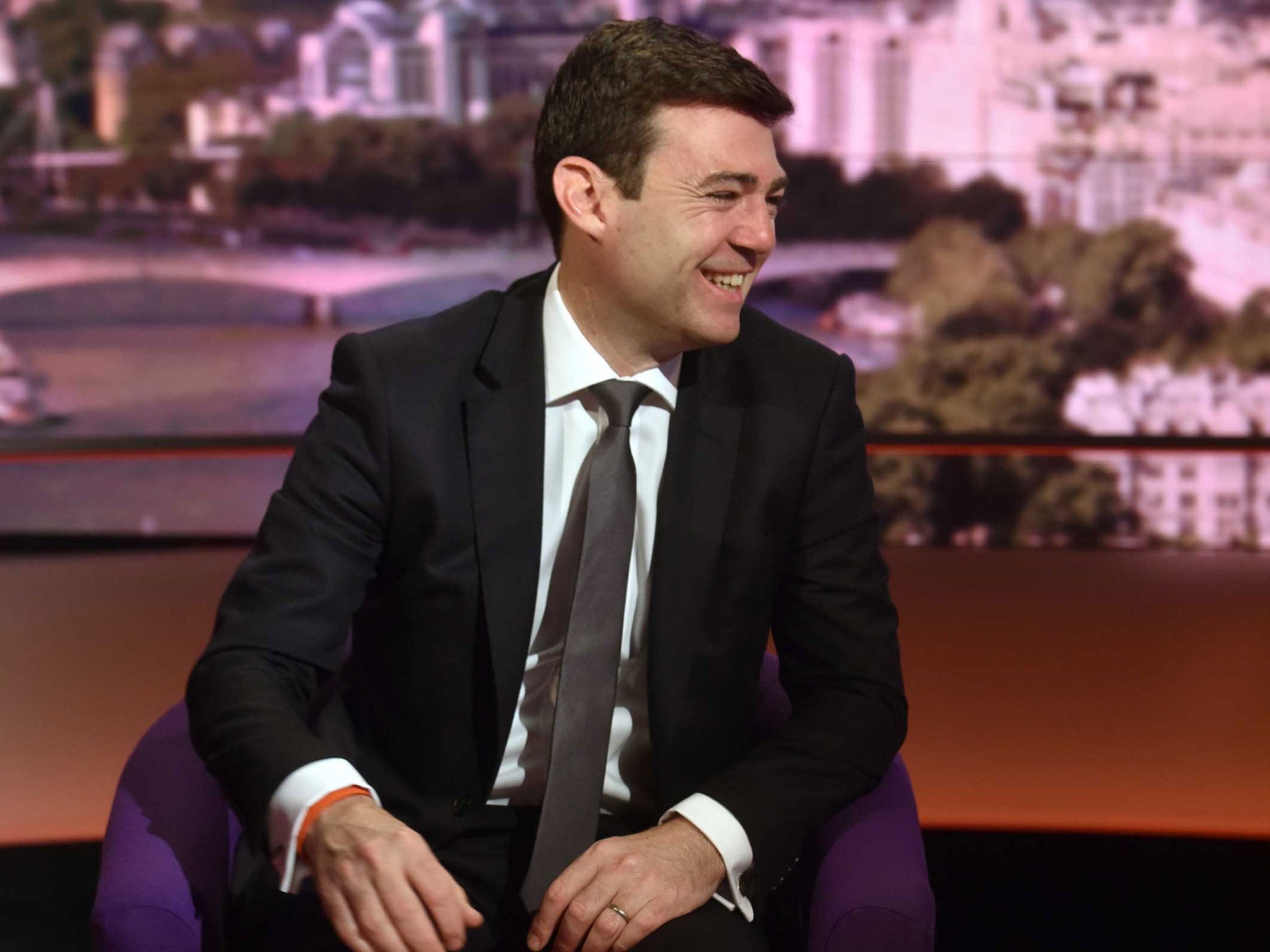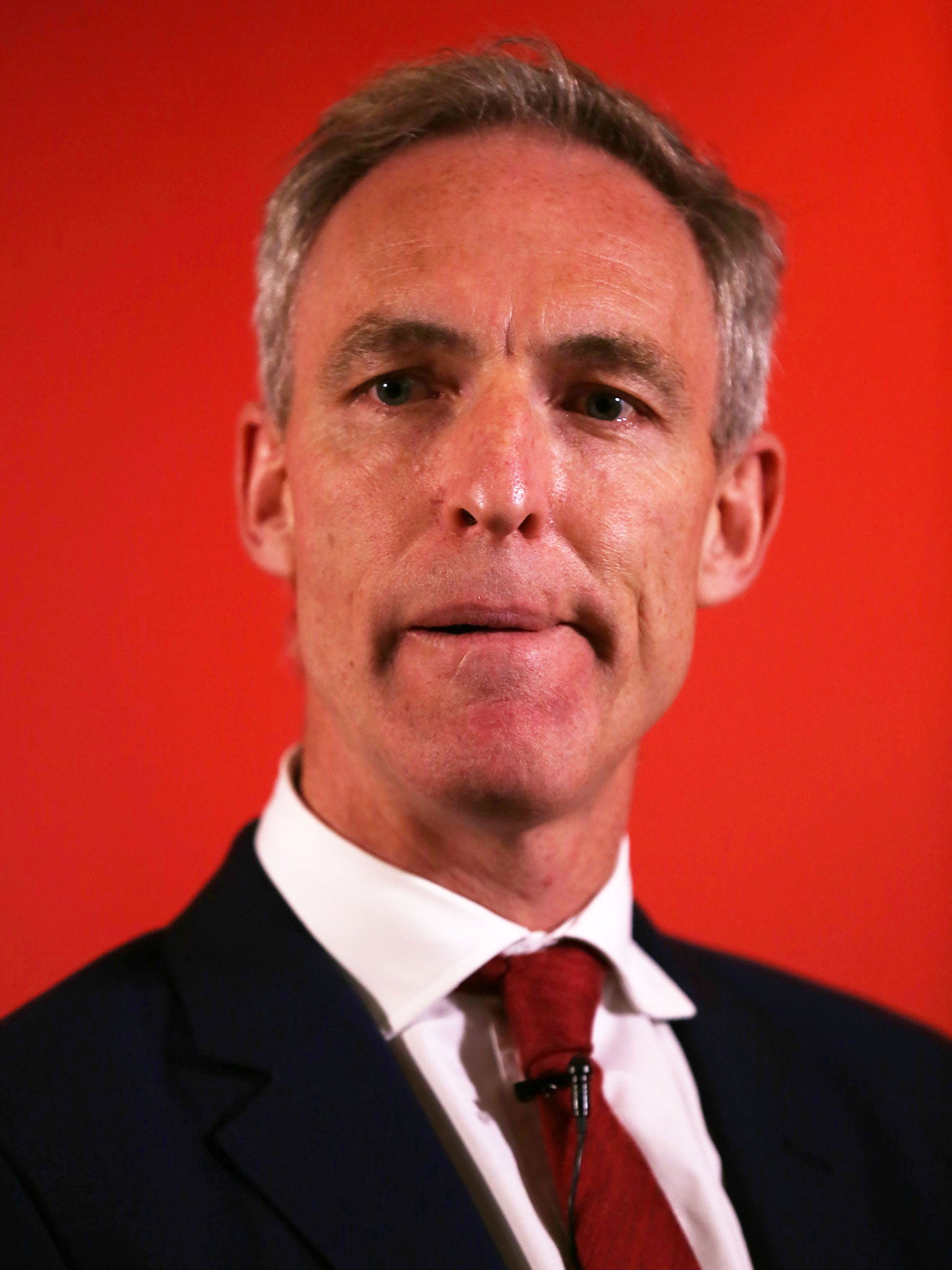Unite union could sever link with Labour amid war of words over new leader, says Len McCluskey
The leader of the Unite union claimed that Labour’s heavy defeat in the general election was 'a great opportunity for a complete rethink'

Your support helps us to tell the story
From reproductive rights to climate change to Big Tech, The Independent is on the ground when the story is developing. Whether it's investigating the financials of Elon Musk's pro-Trump PAC or producing our latest documentary, 'The A Word', which shines a light on the American women fighting for reproductive rights, we know how important it is to parse out the facts from the messaging.
At such a critical moment in US history, we need reporters on the ground. Your donation allows us to keep sending journalists to speak to both sides of the story.
The Independent is trusted by Americans across the entire political spectrum. And unlike many other quality news outlets, we choose not to lock Americans out of our reporting and analysis with paywalls. We believe quality journalism should be available to everyone, paid for by those who can afford it.
Your support makes all the difference.The controversial leader of the Unite union has raised the spectre that Britain’s biggest trade union could sever its link with Labour if the party does not choose a leader to the unions’ liking.
Speaking less than 24 hours after being publicly told by Labour’s outgoing leader in Scotland, Jim Murphy, that he should stay out of the party’s affairs, Len McCluskey claimed that Labour’s heavy defeat in the general election was “a great opportunity for a complete rethink”.
“The SNP have been gaining ground for years and Scottish Labour has displayed an arrogance that, unfortunately, led us to where we are at the general election,” he told BBC Five Live’s Pienaar’s Politics programme yesterday. “Within my own union there was huge support for the SNP.”
Though Mr McCluskey said that he personally wants the union to keep backing Labour in Scotland, at Unite’s conference in July it will debate a proposal to abolish the rule which prevents the union donating money to any other party apart from Labour.
The last Labour-affiliated union to donate to a rival party in Scotland was the RMT, under the leadership of the late Bob Crow, who helped fund the tiny Scottish Socialist Party in 2004. The result was a complete break between the union and Labour that has not been healed.
A similar rift with Unite would end any influence that Mr McCluskey wields over its policies or choice of leader – a development that some Labour politicians would welcome. When Mr Murphy announced on Saturday that he was resigning as Scottish Labour leader despite narrowly surviving a vote of no confidence, he went on to attack Mr McCluskey.
“The leader of the Scottish Labour Party doesn’t serve at the grace of Len McCluskey, and the next leader of the UK Labour Party should not be picked by Len McCluskey,” he said. “The siren voice from behind a big desk in Unite’s headquarters in London shouldn’t be allowed to instruct what the Scottish Labour Party does. Len McCluskey and the Unite leadership are the type of people who could back the wrong horse in a one-horse race.
“That is just the way of the world, but it shouldn’t be the way of the world in the future.”
But a rift with Unite would deal a grave blow to Labour’s finances. In the six months running up to the election the union gave Labour £3.6m. It might also harm Labour’s support among working-class voters, many thousands of whom deserted Labour to support the SNP or Ukip.
Andy Burnham, the front-runner in the contest to replace Ed Miliband as Labour leader, revealed that he has had a talk with Mr McCluskey about Labour’s “devastating defeat” – though he denied being Unite’s favoured candidate, and the Unite leader denied that he or his union had yet decided whom they are backing.
Mr Burnham reinforced his position as the leading contender in the leadership race when he revealed that one of the Shadow Cabinet’s strongest performers, Rachel Reeves, has joined his campaign team.

Ms Reeves, the shadow Work and Pensions Secretary, will help Mr Burnham project himself as a business-friendly candidate thanks to her past as a former Bank of England economist. Ms Reeves has herself been frequently mentioned as a potential Labour leader, but will be on maternity leave for much of the campaign.
Mr Burnham – who said in a newspaper interview that a referendum on Britain’s EU membership should be brought forward to 2016 to avoid prolonging business concerns, despite Labour previously opposing a referendum – also has the backing of the former Lord Chancellor Lord Falconer, who was Tony Blair’s old flatmate and one of his most trusted ministers. Support from figures such as Ms Reeves and Lord Falconer will help Mr Burnham answer critics who see him as the left-wing candidate with the traditional Labour message that failed them in this month’s election.
Questioned on the BBC’s Andrew Marr programme whether he was the “union” candidate, Mr Burnham replied: “I’m the unifying candidate. I am bringing all parts of the Labour movement together.”
Asked about Labour’s links with trade unions, he said: “I’m proud of those links. I am proud that ordinary working people will be taking part in this contest.”
Meanwhile the man who oversaw the writing of Labour’s manifesto said the party was facing one of the greatest crises in its history.
Jon Cruddas said that whoever takes the helm as the new leader following Mr Miliband’s resignation must be prepared for a rethink on what the party is all about.
Mr Cruddas, who was drafted in by Mr Miliband to conduct a policy review and oversee the 2015 manifesto, said the party’s election loss was “profound”.
The MP for Dagenham and Rainham told BBC Radio 4: “Arguably, it’s one of the great crises of the Labour Party’s history. I argued that the 2010 defeat was actually the worst defeat in Labour history since 1918, and the defeat of 10 days ago was much worse.”
The party’s leadership battle is currently being fought by Yvette Cooper, Mary Creagh, Liz Kendall and Andy Burnham, with Tristram Hunt also expected to throw his hat in the ring.
Mr Cruddas said the person chosen to take charge of the party must be someone who “owns” the 7 May defeat, and warned against “swerving around” it.
He added that the task for a new leader will be huge, and they must be “prepared to go to the dark places and fundamentally rethink what the Labour Party is for, who it represents, what it’s all about”.
He later called for the creation of an independent Labour party in England that seeks to contest the “very notion of modern English nationhood” – and said that Labour’s problems began around the time of George Osborne’s “omnishambles” Budget in 2012, when the party got a poll lead “we never earned”.
Q&A: Can the unions choose Labour's leader?
Q | Can Len McCluskey choose the next Labour leader?
A | Despite the vast sums that Unite donates to Labour, the union’s boss does not have the power he once had to decide who will be the party leader – and nothing like the power union barons wielded in the 1980s when, if the heads of the three biggest unions came to an agreement, the election was basically over.
Q | What has changed?
A | The union block vote, in which the boss of the biggest union cast a million votes simultaneously, went out in 1993, but there remained an electoral college in which the votes of MPs, rank-and-file party members, and levy-paying members of affiliated unions were counted separately, each grouping making up a third of the overall total. Under this system, David Miliband won the votes of a majority of MPs and party members but lost heavily in the union section.
Q | What part did Len McCluskey play in that?
A | Unite members voting in the union section received their ballot papers from their union, along with a recommendation that they vote for Ed Miliband. Unite was not the only union to make a recommendation. Some unions backed David Miliband. But Unite is the biggest union, and its intervention made a substantial difference.
Q | What happens this time?
A | There will be no electoral college, and every vote cast will have the same weight, making it harder for union bosses to affect the result. However, they still have some clout, because it is open to any levy-paying union member to pay an extra £3 to become an “affiliated” party member, with the right to vote in the leadership contest. Some unions are writing to or phoning their members to persuade them to pay that £3. The more that do, the better the chances the unions will get the leader they want.
Q | Can the unions decide the outcome?
A | Unions currently do not have the numbers to make a decisive difference. When the leadership campaign began, there were only about 500 members who had affiliated by paying their £3, out of a total of 230,000 eligible to vote. That number will go up, but probably not to a level at which it will have a decisive impact. And not all unions will back the same candidate. While Unite is likely to back Andy Burnham, the next biggest union, Unison, is lined up behind Yvette Cooper.
Join our commenting forum
Join thought-provoking conversations, follow other Independent readers and see their replies
Comments